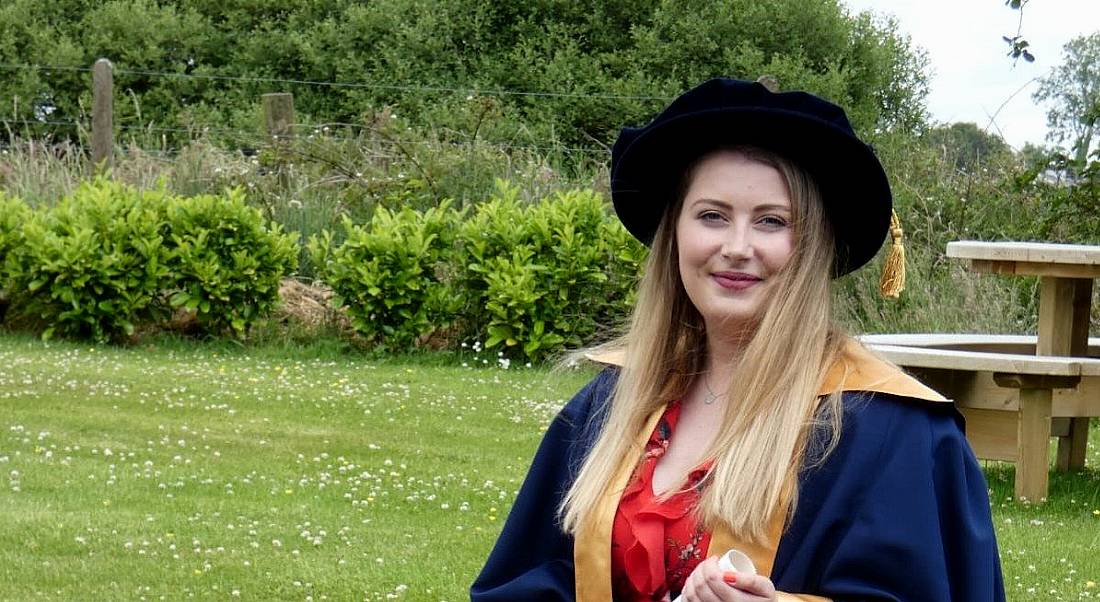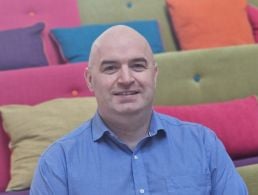Having started as an intern at MSD, Fiona Hennessy urges other interns to take whatever opportunities come their way.
Fiona Hennessy is a technical specialist with pharma company MSD in Cork, having worked her way up from a technology internship in 2014.
In that time, she completed an industry-based PhD with the company in conjunction with the Cork Institute of Technology, which is now Munster Technological University (MTU).
Here, she talks to Siliconrepublic.com about the challenges she faced while completing her PhD, her advice for interns and why she’s never bored working in pharma.
‘My internship opened up so many doors for me’
– FIONA HENNESSY
What first stirred your interest in a career in the pharma industry?
My first placement experience at MSD Brinny played a major role in my decision to pursue a career in process development and support. I interned with the department I currently work in and just loved the work from day one.
The idea of no two days being the same was very exciting and the fact that each project presents a new challenge or scientific problem we have to work together to troubleshoot was very appealing to me.
What education and other jobs led you to the role you now have?
I started off in a broad applied bioscience course in the Cork Institute of Technology (now MTU) and specialised at the start of my second year into the pharmaceutical biotechnology course.
A third-year placement programme then brought me to MSD Brinny, which allowed me to gauge my interest in pursuing a career in industry as well as get a better feel for what areas I might be suited to.
What were the biggest challenges you encountered on your career path?
My biggest challenge to date has been translating the work I did during my PhD from the industry format into something suitable for academia. The language and format of academic papers is very different to that of industry, so bridging the gap between the two was a challenge.
I was really lucky to have excellent support from both Dr Bart Cronin at MSD Brinny and Dr Rosemary Rea and Dr Jim O’Mahony at MTU, getting best-in-class views and guidance from both worlds. It was a challenging process but a very rewarding one too and I learned a lot from it.
Was there any one person who was particularly influential as your career developed?
There are so many people that have been key to me getting to where I am in my career today! I’ve been incredibly lucky to be surrounded by so many supportive and inspiring colleagues.
One of the people who has been most instrumental in my career path is Bart Cronin. Bart is the site senior principal scientist and was my industry supervisor and mentor for my PhD. With almost 30 years of industry experience, Bart is one of those rare individuals that is not only an expert in his field (and it’s a very broad field) but also possesses all the skills and charisma to impart that knowledge to others.
He always was and continues to be so generous with his time. I could often go to him to talk through a problem I’m seeing in the lab and a five-minute chat would turn into an hour-long discussion digging into the science behind the issue. I would come away from those interactions feeling so energised and excited about science and our work.
Bart tackles every task with uncompromising integrity, enthusiasm and attention to detail. I really feel he worked very hard to instil those qualities in my approach to work and the skills I’ve learned from him continue to influence my career today.
What do you enjoy about your job?
I really enjoy the unpredictability of the area I work in and the variability of each day. Every day presents a new challenge or opportunity and as a consequence I’m constantly learning. I really love that!
I’m never bored. It can be challenging but it’s also very exciting. However, I would say that I think I’m very fortunate with the company I’m in. There can be a fine line between something being challenging and stressful, and I think the key differentiator is having a good team and a supportive manager behind you.
Having that support network that enables and empowers you can completely change your perspective on the challenge in front of you. With the right support, every issue seems infinitely more manageable.
What aspects of your personality do you feel make you suited to this job?
I would say in general I have a very curious and analytically orientated mind. I’m definitely very data-driven, and I think that really helps with the area I’m in.
I like to get to the bottom of an issue. I also love researching and planning. On trips away, I’m typically the person that has the whole trip researched and mapped out and I think that carries over to work.
How did MSD support you on your career path?
MSD Brinny has provided me with an abundance of support and really has been central to my career development. First, they gave me the opportunity to intern on site for my third-year placement. They then allowed me to return to complete my final-year project on site for a further eight weeks. During my fourth year I also had the opportunity to interview for a potential PhD position which I was successful in getting.
Post-PhD, I have found that MSD as a company always strives to continuously invest in the development of its employees through a wide range of initiatives. A great example would be the Next Generation Network’s Reverse Mentoring Programme, which I myself am currently participating in.
The programme, which puts a twist on the classical mentoring relationship, aims to create co-mentoring partnerships between our company’s leaders and all generations of talent, where sharing of perspectives, ideas, and developmental experiences takes place in a transparent and open environment to build cross-generational bridges to support a more diverse and inclusive culture. I believe these kinds of initiatives are vital to help create a positive work environment for all employees, as we enter an era where for the first time we have five generations working together as one team.
What advice would you give students considering a career in this area?
If the opportunity presents itself to intern in industry or academia, definitely try take it. Even if it’s not part of your typical undergrad course, try make those opportunities for yourself by reaching out to individual companies or your college lab.
You never know what may come of a simple email. Employers really recognise the drive and initiative it takes to seek out these opportunities. My internship opened up so many doors for me and helped me see where I wanted my career to start.




